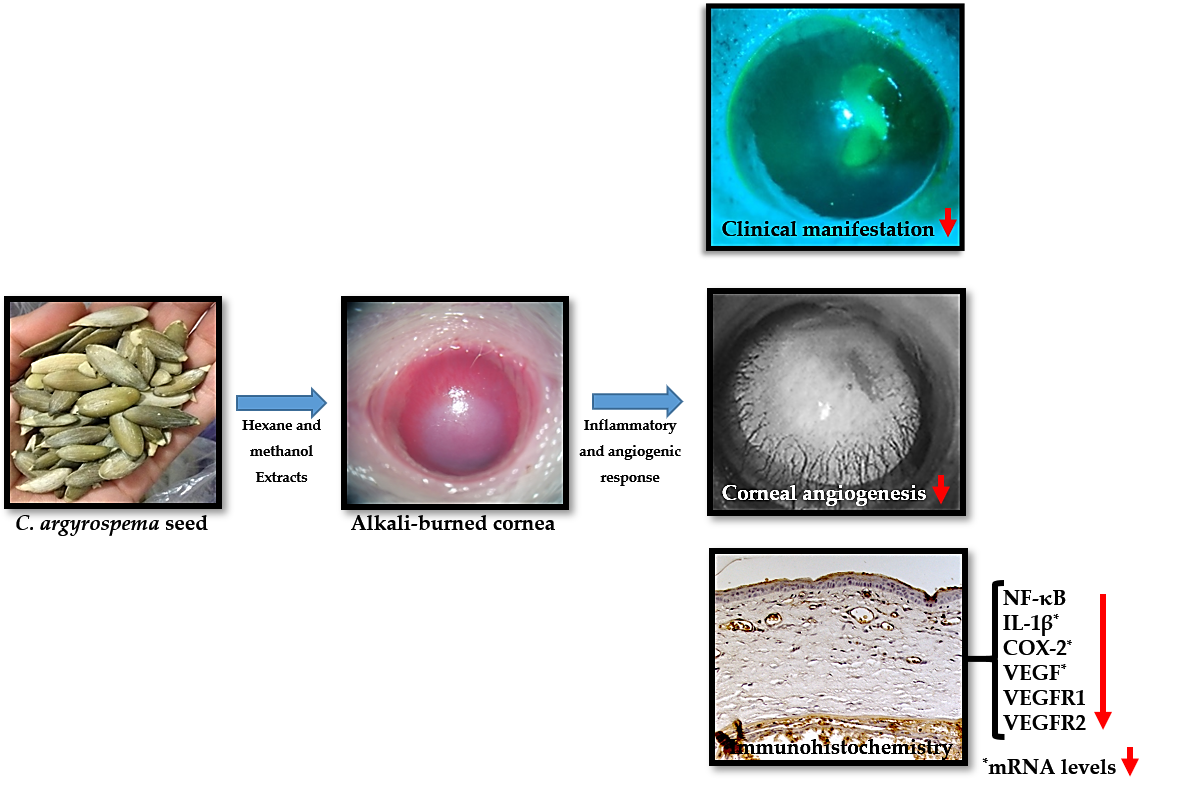Cornea severe inflammation produces opacity or even perforation, scarring, and angiogenesis, resulting in blindness. The cornea can be used to study the effect of new anti-angiogenic chemopreventive agents. We researched the anti-angiogenic effect of two extracts, Methanol (Met) and Hexane (Hex), from the seed of Cucurbita argyrosperma, in the inflamed corneas. The corneas of Wistar rats were alkali-injured and treated intragastrically for seven successive days. Clinical manifestation as opacity score, corneal neovascularization (CNV) area, re-epithelialization percentage, and histological evaluation were performed. Inflammatory (COX-2, NF-κB, and IL-1β), and angiogenic (VEGF-A, VEGFR1, VEGFR2) markers were assessed by immunohistochemistry. Cox-2, Il-1β, and Vegf-a mRNA levels were also determined. After treatments, we observed slim corneal thickness with lower opacity scores and low cell infiltration compared to untreated rats. Treatment also accelerated wound healing and decreased CNV area. The staining of inflammatory and angiogenic factors was significantly decreased. These effects are related to a down-expression of Cox-2, Il-1β, and Vegf. These results suggest that intake of C. argyrosperma seed can be used to attenuate the angiogenesis secondary to inflammation in corneal chemical damage.

